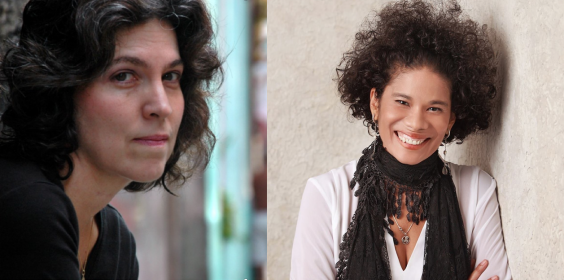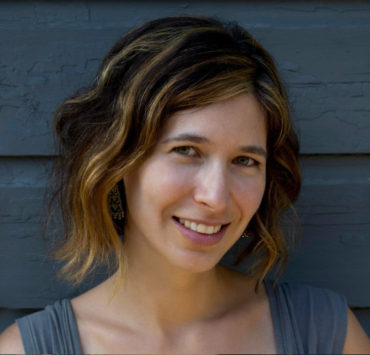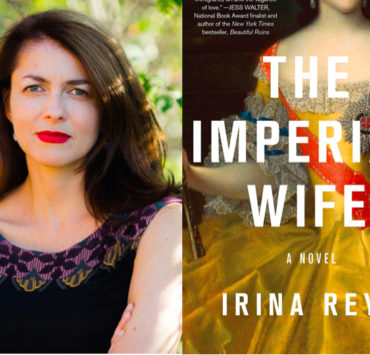
Sampsonia Way interviewed Aurora Arias and Achy Obejas about how inhabiting two different countries can affect both their writing and their process, the themes and ideas that they obsess over in their writing and the limitations of trying to bring about change through writing.
Achy, you’ve said that being born in Havana has defined the rest of your life. Could you talk about how it’s defined the lens that you write through?
Achy Obejas: For writers in general, when they write they’re inspired by what happens to them, their experiences, what surrounds them, the people who they communicate with, that’s where the writing material comes from. As a Cuban—a person born in Cuba who still has a great interest in Cuba, who has strong ties to Cuba—that’s a part of my life. Cuba is a vibrant theme for me in a way that is very different to those who come to the theme of Cuba from the outside. I think they come with a different lens or a distance that significantly changes the perceptions of what Cuba is. They also feel it differently. Cuba is a part of me. I can’t rid myself of Cuba. It’s as if I were to get rid of my arm, it’s impossible. I think when someone gets to a topic from the outside it’s different, one can live perfectly without it. It doesn’t carry the same weight; nor do they torture themselves with it as much. The fact that I was born in Cuba affects everything.
Aurora, as a Dominican writer, do you also relate to what Achy says about the effect that being born in Cuba had on her?
Aurora Arias: Yes, it’s as if she was relaying my own feelings, my own words. In my case, with the Dominican Republic which is where I was born. I emigrated here less than ten years ago, so I still have that stark contrast between two worlds, between two cultures, and between two languages. I’m going through a very strong and of course, very interesting transition especially as a writer. I remember when I arrived to the US a writer friend told me “Oh, what a shame now you’re going to write about American suburbia, or the alcoholic Vietnam vet. We’ve lost you as a writer who writes about Santo Domingo and the Caribbean.” I found that funny and scary. I laughed because I knew inside me that would not happen, but I got scared because I thought, Wow, is this what happens when someone emigrates? And that’s not possible. It’s something that’s so engrained in your bones—your family. I don’t tend to be too patriotic. That’s a different thing. Your sensibility was formed there and it matters a lot. It’s impossible that it would cease to matter because you have moved to a different place. I’m still writing about the things that happen in my country. Now with a greater vision, which I love. I’m fascinated by the writer that’s being created. I imagine it might also be happening to you a bit.
AO: Those contrasts help me a lot when I go back and forth. You notice the differences. For example, we were talking yesterday about my in-laws. My in-laws are American and they’re wonderful, great people. They’re loving and kind, and they’re people that hug you and kiss you. In my wife’s home there’s always noise. There’s people coming and going, nieces and nephews, and this and that. But what I was telling Aurora is that there isn’t the type of conversation that I’m used to in Cuba or between Cubans or Carribeans. That lazy conversation where one talks for hours about nothing. My mother-in-law would be incapable of sitting down for an hour to talk. She has to be doing something. She has to make a cake, wash the dishes, or fold the laundry. In Cuba one of the greatest pleasures is to sit down on the porch and talk for hours. You really don’t talk about anything. It’s all crap.
AA: Something that surprised me—I’m used to it now—but at least where I am, there’s no dinner conversation. We sit, eat and then everyone goes to do their thing. I always stayed there like—
AO: “What? What’s up?”
AA: That after-dinner talk of what we just ate, what we’re doing, etcetera—that can last hours. That’s what I’m missing.
AO: There’s something very satisfying about that. Sometimes they’re very profound and striking conversations, and very often they’re just stupid conversations.
AA: Yes, it’s also a way of knowing what the other person is doing. Which is also a way to waste time.
AO: Our thing? Of course.
AA: I’ve had to learn how to be more efficient with my time. Before, time was this long, stretched out thing.
AO: Infinite time.
AA: Now I think I’m able to do much more in a day.
AO: It’s interesting for me how the idea of efficiency changes a lot. I’ve learned to be very efficient in this country. With all my craziness because I am not efficient. So for me it was a discipline I had to learn and it’s something I work at every day.
AA: Welcome to the club!
AA: In my case, my husband and I—he’s the reason why I’m here in the United States—we met speaking Spanish, so that’s the language of our relationship. Which has affected me because if he were to talk to me in English, I would be a lot more fluent in that language. When I go to Santo Domingo it’s not like what happens with you, I don’t have that collision. I do realize how fast things are changing in terms of language between young people. Because my literary work cultivates itself on slang and what’s happening between young people and the street. I see this in my children. I have three young daughters and talking with them, I hear words from their young generation that I have no idea what they mean. I spend my supposed vacations trying to immerse myself and renew.
AO: Anthropological work.
AA: Which I love. It’s super interesting for me. I go two times a year for the most part, and I come back nourished. It’s like going to my country to learn new things. I love that.
What’s the most recent slang that you picked up from the last time you were there?
AA: In December when I went, I heard “You have dema.” I thought Dema? It means ‘jealousy.’ Never in my life had I heard that word. That’s just one example. I’ve also noticed that they cut words more and more which is something that’s very Carribean. They’ll talk to each other so fast, cutting words and it’s almost another language. Sometimes I think, Am I just getting old?
What are your obsessions as writers and how have those obsessions changed over time?
AA: I’ve discovered that I have an obsession that I didn’t recognize before. I recognized it here working on a novel. I’m obsessed with writing about women, especially Latin American women and Caribbean women. How the Dominican woman, specifically, is so unprotected by the state, by society, even by her own family. The lower the class which you belong to, the less protected you are. Fathers will give away their daughters because they supposedly can’t take care of them. For example, my mother who is 80 years old was raised in a very poor family of 12 kids. She said that in those times, to give away a child would have been unthinkable.
What hurts me the most and what I’m most obsessed with is how many European especially—sometimes American—men will come to the island and see a 12- or 14-year-old girl that they like. They’ll take her and everyone celebrates this because he’s a gringo, a foreigner so they assume she’s going to be better off. That’s something I’ve discovered. There’s something there that hurts me and I can’t avoid reflecting on it.
One of my other obsessions is the city. Especially how the city impacts its people and at the same time, how the people create that city; that interaction. In terms of general characteristics, those are two of the main ones especially in narrative. Poetry is more intimate and personal.
AO: What I’m most obsessed with is the tension between the private and the public self. In Cuba, we call it a “doble moraleja” but in reality, it’s more than that. It’s like people have two completely different realities. That’s very hard. Everyone says that it’s a political situation, but in reality it totally affects your life in every way. You start to become complicit in things that are quite terrible. For example, this ex-girlfriend of mine had an assistant that was married to a Cuban. At some point before she got together with the Cuban she was with a Spaniard. This Spaniard left her money to support her. He made it clear to her that he wasn’t going to get her out of Spain and that he didn’t like kids so he wasn’t going to get her child out of Spain but that if she waited for him, he would help her. So the situation was that one or two times a year when the Spaniard would visit, the Cuban husband would leave the house and all evidence of his existence would have to be erased. The first time that they explained this to me, my girlfriend told me “Look, something you have to understand, this girl is going to show up with another man, and we can’t talk about her husband.” Everyone was in on this, her family, her mom, her grandmother, her aunt. It was a whole performance that they would have to do. Of course, I was shocked and I refused to participate. Everyone was so nervous because I was horrified. Not so much for her but also because in my eyes, it was so humiliating to her husband. He was actually the one who came to me and said “No, no, no, this is how we live. This is how we survive. This has to be done.” The incredible thing was that in two or three years, it became so normal in my life. I was participating without thinking about it. We had to take away all family pictures and get rid of all the evidence of this man.
I’m interested in that way of thinking and that manner of struggling through these things, for political or economic reasons. In this case it was economic reasons. In Cuba, a lot of people spend their lives thinking that someone in their family was an informant for the Ministry of the Interior, that they were a spy.
AA: So, paranoia.
AO: A phenomenal paranoia. We know that when people travel abroad and come back a lot of times, someone will call and ask who they saw and how they were. So there’s reasons for that paranoia. I have a friend who told me outright, “Look, just so you know, they called me,” they never say who called. It’s just this mysterious force that calls. “They called me and I told them that you were here and I told them about our conversation, but don’t worry. They’re not going to call you.” You get a phenomenal paranoia. People live in that state publicly where they are used to playing a very particular role, but privately you don’t always feel comfortable in saying what you think.
I have a friend whose father was a very well-respected poet in Cuba; prized nationally, one of the greatest poets of the revolution. But when he was an old man, there would be blackouts that would last days. There was a moment when he couldn’t take it anymore and he yelled out “Down with Fidel!” Of course, the entire neighborhood knew who was yelling “Down with Fidel,” but because he was so loved nobody said anything. The next day he went to an event to celebrate Fidel. That madness is more than hypocrisy because your life depends on a certain type of behavior so it becomes an automatic reflex. I think there are generations in Cuba who are damaged because of having to live like that.
Do you see your role as a writer more to observe or more to bring about change?
AO: I used to think it was to bring about change, when I was younger and fiery. Not so much writing novels, but writing poems and stories. Especially as a young lesbian and during the AIDS crisis, my activism took on a lot of different roles and one of those was writing and provoking people to think about certain things. But as time has gone by, even though I think in my lifetime there’s been a tremendous amount of change as far as queer issues are concerned and the change has been sonic, I personally have become more of an observer. I don’t know if I just got wiped out during those really heady years. It wasn’t just AIDS and it wasn’t just queerness, I was so engaged with some of the issues in Chicago around Latinos and other racial issues, and electing our first black mayor. I remember, I knew that something had really changed when I was hired as the distinguished visiting writer at DePaul University and it was a really cushy job. That was in 2006 or 2007, not a week had gone by and I got a call from what was then a campaign for Barack Obama asking if I was interested in working on his press operation. I didn’t even hesitate; I said “No, I’m going to write.” I had worked on Harold Washington’s campaign. I remember my friends saying “You know it’s going to be historic?” And I said “Yeah, I’m going to sit out of history right now.” It just felt like my own faculties needed a different perch.
AA: For me, it’s about trying to incite change especially in making certain things evident and visible. I worry about accepting certain things as the norm, that they’ll be taken for granted, and everyone will participate and be complicit. Even though writers, we sometimes have very high aspirations but it’s a very human aspiration. An aspiration of wanting the work that one does to have a certain impact and to matter. I sometimes go through a crisis that I image many writers go through: “Why does this matter?”
AO: I’m in a constant crisis because like I was saying, at one point trying to provoke change was the goal now less so. Now I think I’m more of an observer and in part because so many times one writes a story with the idea that you’ve just described: to not normalize the things that people see, that these things are absurd and dangerous, and that these things are bad. But at the same time, I think many readers approach this literature and don’t see it like that. What they see is a reflection of their own reality and they don’t take the necessary time to say “This is bad.” On the contrary, they say “This is exactly like my neighborhood!” The necessary reflection to provoke change, I’m not sure that’s happening much.
AA: Aside from the fact that once you write what you write, you don’t have any control in what’s going to happen with it. It happened to me once with my story “La Novia del Atlantico” (Girlfriend of the Atlantic). It’s a story that while I was writing I felt bad because of what I was narrating. Even though a lot of parts are funny—humor just comes out of me like that—one man who read it came up to me and said “Wow, that’s great. I didn’t know you could go there and find girls like that.” I also don’t believe too much in writing just for change, because journalism also exists for that purpose.
AO: Journalism and essays.
AA: Fiction gives you the liberty to create a character out of various sources. On the one side there’s the artistic, the canonizing of your sensibilities through something creative, but there’s a compromise. I don’t know if I should call it a compromise, but there’s something and it has a lot to do with your upbringing too. I come from a family of journalists. My father was very much in that world. He received threats during the Balaguer era for a column he used to write. I grew up a bit like that. My brother is a journalist and he also gets complaints. I don’t know if something can be achieved that way, but there are things that one can’t avoid.
AO: We have to write. We have to write a testimony: “Hey, this happened. This is true.” But writing it not as journalism, not as a report but writing it as a reality.
AA: And if you were to try and think about a world where writers never tried to portray their era, their society, their lives and everything, it’s incomprehensible. So we have a purpose.
Aurora Arias is a poet and fiction writer from the Dominican Republic. She has two books of poetry, Vivienda de Pajaros and Piano Lila, and three books of short stories, Invi’s Paradise y Otros Relatos, Fin de Mundo y Otros Relatos, and Emoticons.
Achy Obejas is a Cuban-American translator and author of five novels including Ruins, and Days of Awe and one poetry chapbook, This is What Happened in Our Other Life. Her translation into Spanish of Junot Díaz’s The Brief Wondrous Life of Oscar Wao was a finalist for Spain’s Esther Benítez Translation Prize from the national translator’s association.
Translated from the Spanish by Nuria Marquez Martinez
Previously published in Samposoniaway.








